第15章 CHAPTER XIII
Mrs. Bull's vindication of the indispensable duty incumbent upon Wives in case of the Tyranny, Infidelity, or Insufficiency of Husbands; being a full Answer to the Doctor's Sermon against Adultery.** The Tories' representation of the speeches at Sacheverel's trial.
John found daily fresh proofs of the infidelity and bad designs of his deceased wife; amongst other things, one day looking over his cabinet, he found the following paper:--"It is evident that matrimony is founded upon an original contract, whereby the wife makes over the right she has by the law of Nature in favour of the husband, by which he acquires the property of all her posterity. But, then, the obligation is mutual; and where the contract is broken on one side it ceases to bind on the other.
Where there is a right there must be a power to maintain it and to punish the offending party. This power I affirm to be that original right, or rather that indispensable duty lodged in all wives in the cases above mentioned. No wife is bound by any law to which herself has not consented. All economical government is lodged originally in the husband and wife, the executive part being in the husband;both have their privileges secured to them by law and reason; but will any man infer from the husband being invested with the executive power, that the wife is deprived of her share, and that she has no remedy left but preces and lacrymae, or an appeal to a supreme court of judicature? No less frivolous are the arrangements that are drawn from the general appellations and terms of husband and wife. A husband denotes several different sorts of magistracy, according to the usages and customs of different climates and countries. In some eastern nations it signifies a tyrant, with the absolute power of life and death. In Turkey it denotes an arbitrary governor, with power of perpetual imprisonment; in Italy it gives the husband the power of poison and padlocks; in the countries of England, France, and Holland, it has a quite different meaning, implying a free and equal government, securing to the wife in certain cases the liberty of change, and the property of pin-money and separate maintenance. So that the arguments drawn from the terms of husband and wife are fallacious, and by no means fit to support a tyrannical doctrine, as that of absolute unlimited chastity and conjugal fidelity.
"The general exhortations to fidelity in wives are meant only for rules in ordinary cases, but they naturally suppose three conditions of ability, justice, and fidelity in the husband; such an unlimited, unconditioned fidelity in the wife could never be supposed by reasonable men. It seems a reflection upon the Church to charge her with doctrines that countenance oppression.
"This doctrine of the original right of change is congruous to the law of Nature, which is superior to all human laws, and for that Idare appeal to all wives: It is much to the honour of our English wives that they have never given up that fundamental point, and that though in former ages they were muffled up in darkness and superstition, yet that notion seemed engraven on their minds, and the impression so strong that nothing could impair it.
"To assert the illegality of change, upon any pretence whatsoever, were to cast odious colours upon the married state, to blacken the necessary means of perpetuating families--such laws can never be supposed to have been designed to defeat the very end of matrimony.
I call them necessary means, for in many cases what other means are left? Such a doctrine wounds the honour of families, unsettles the titles to kingdoms, honours, and estates; for if the actions from which such settlements spring were illegal, all that is built upon them must be so too; but the last is absurd, therefore the first must be so likewise. What is the cause that Europe groans at present under the heavy load of a cruel and expensive war, but the tyrannical custom of a certain nation, and the scrupulous nicety of a silly queen in not exercising this indispensable duty, whereby the kingdom might have had an heir, and a controverted succession might have been avoided. These are the effects of the narrow maxims of your clergy, 'That one must not do evil that good may come of it.'
"The assertors of this indefeasible right, and jus divinum of matrimony, do all in their hearts favour the pretenders to married women; for if the true legal foundation of the married state be once sapped, and instead thereof tyrannical maxims introduced, what must follow but elopements instead of secret and peaceable change?
"From all that has been said, one may clearly perceive the absurdity of the doctrine of this seditious, discontented, hot-headed, ungifted, unedifying preacher, asserting 'that the grand security of the matrimonial state, and the pillar upon which it stands, is founded upon the wife's belief of an absolute unconditional fidelity to the husband;' by which bold assertion he strikes at the root, digs the foundation, and removes the basis upon which the happiness of a married state is built. As for his personal reflections, Iwould gladly know who are those 'wanton wives' he speaks of? who are those ladies of high stations that he so boldly traduces in his sermon? It is pretty plain who these aspersions are aimed at, for which he deserves the pillory, or something worse.
"In confirmation of this doctrine of the indispensable duty of change, I could bring the example of the wisest wives in all ages, who by these means have preserved their husband's families from ruin and oblivion by want of posterity; but what has been said is a sufficient ground for punishing this pragmatical parson."